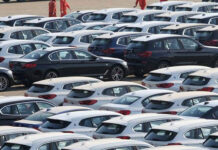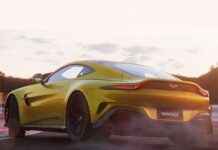
German automaker Volkswagen is determined to take its dominance in the automotive world and extend it to the space of electric vehicles.
While uncertainties owing to COVID-19 pandemic persist, Volkswagen may not leave its EV strategy for too distant a future. Volkswagen AG CEO Mr Herbert Diess vowed to pursue a sweeping transition to electric cars, declaring it a matter of survival even as the coronavirus risks upending business in the near term.
While the world’s largest carmaker has a “healthy order bank,” its development in the coming months hinges on major economies controlling the disease and averting restrictions that would hurt demand and operations, said Mr Diess. Despite the uncertainties, VW will press ahead with aggressive investment in new technology to avoid falling behind as the auto industry fundamentally changes.
“If you’re not fast enough, you’re not going to survive,” he said during a virtual Bloomberg event on November 6. “In the long run, climate change will be the biggest challenge mankind is facing.”
While the CEO warned another lockdown would be “difficult to manage,” the automaker has shown it can weather turbulence. It swung back to profit in the third quarter, echoing robust results from peers including Daimler AG, Tesla Inc. and Ford Motor Co. on the back of a swift demand recovery in China.
Another wave of new infections in key markets, an unsettled U.S. election and Britain’s messy exit from the European Union are now bearing down on the auto industry. Car registrations fell in Europe’s four largest auto markets last month, signaling that sales have relapsed after a surprise gain in September.
Beyond managing through those issues, the more complex task for Mr Diess is positioning the 83-year-old industrial behemoth for the future. Volkswagen, which operates the Audi, Porsche and Lamborghini brands, mastered the combustion engine and now wants to control the software brains for next-generation vehicles.
“This is the most important race and decisive point for our industry in next five to 10 years,” the 62-year-old executive said, adding he won’t compromise on the company’s technology roadmap even if the coronavirus crisis saps sales. “We think we can do it. We have software skills, and we are ramping up fast.”
The coming months will be critical for the CEO to show his electric push is working. After the launch of the Europe-focused ID.3 hatchback was delayed due to software problems, VW is going global with the introduction of its crossover sibling, the ID.4, which will be built and sold in China and eventually the US.
To bolster its electric push, Volkswagen plans to raise investment in the technology, build up battery production capacity and transform entire plants to churn out electric cars, Mr Diess said. Even the ultra-luxury Bentley brand will become electric within four to five years, he said.
Because of the fallout from the coronavirus, “there are several million cars missing in our planning so we have to adapt,” Mr Diess said. “It’s a long-range crisis recovery plan. It reinforces the way we are going. There’s no changing direction”, he added.
Volkswagen aims to double electric-vehicle sales in 2021, the CEO said, as the company seeks to meet increasingly stringent emissions regulations in Europe and elsewhere, part of a broad-based political push to adapt to climate change.
“Governments play a huge a role” by setting policy to influence consumer choices, Mr Diess said. “For many people, it will be very difficult to decide against an electric car.”









